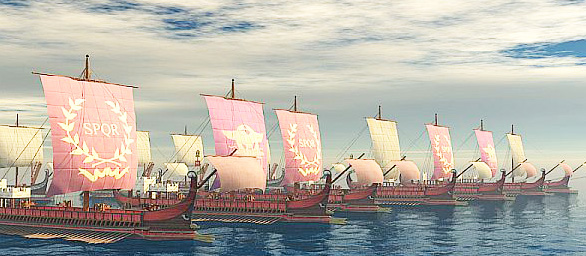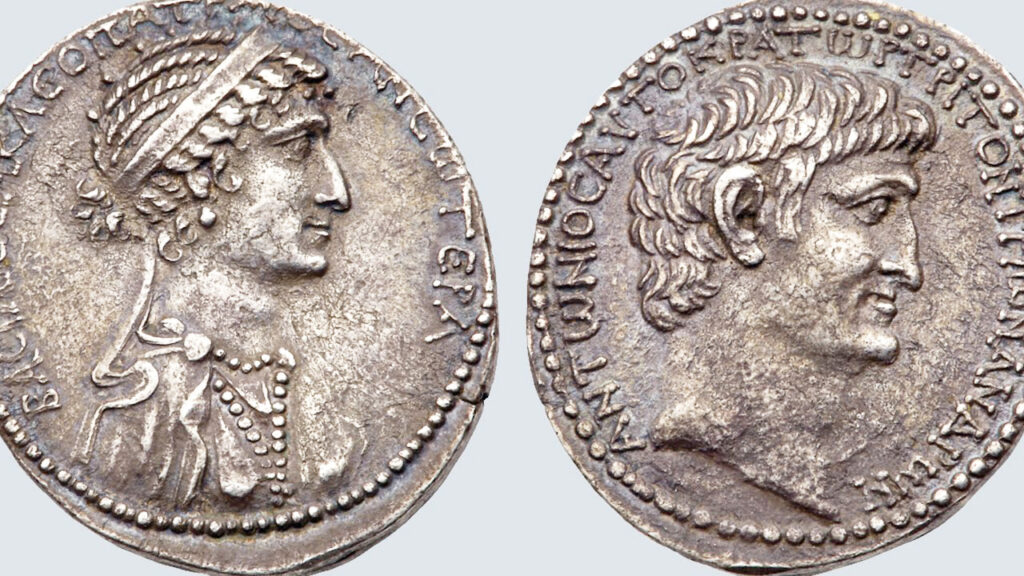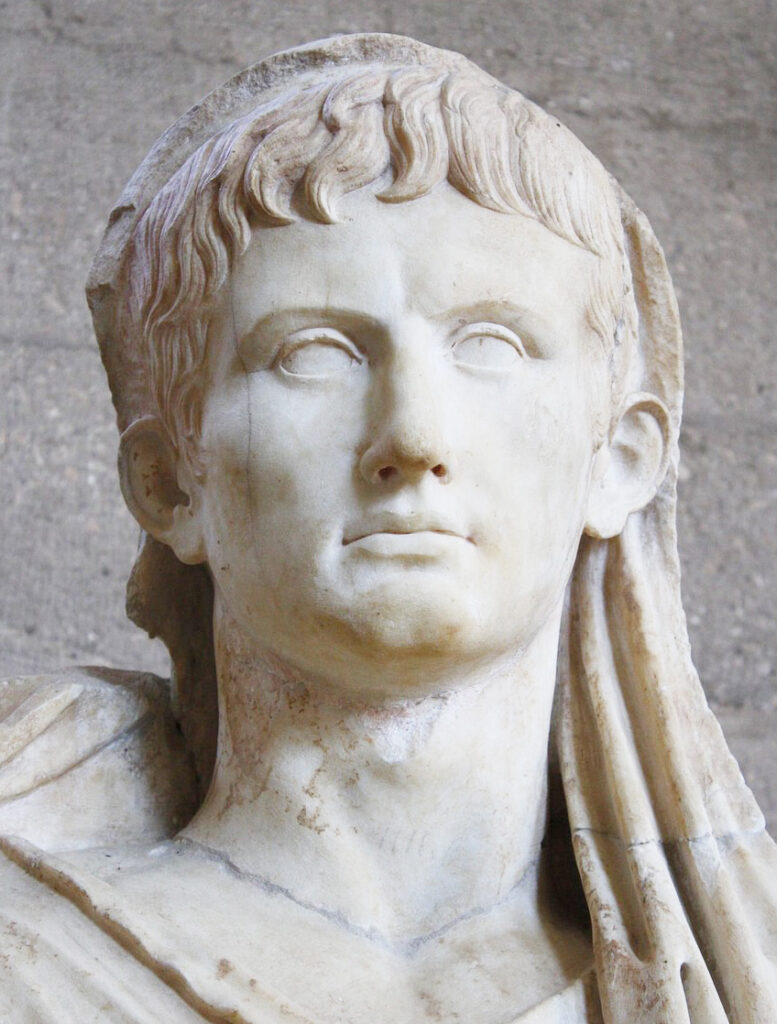History has many twists and turns. Nations and cultures can be shaped by a single event.

September 2nd marked the anniversary of the Battle of Actium in 31 B.C. Julius Caesar had been assassinated thirteen years before, setting off a renewed civil war among Italy’s ruling class. Caesar’s nephew and heir, Gaius Octavian – who would eventually found the Roman Empire and assume the title Augustus – was challenged by Mark Antony, a loyal general and confidant of the murdered dictator. Into this mix came Cleopatra, Queen of Egypt.
The legendary queen had been a wildcard in Roman history from the day she enticed Julius Caesar to share her bed. She claimed a son by the dictator whom she named Caesarion. It was he, not Octavian, who was heir to the Roman domain, according to her. Mark Antony went along with this claim, as he too was bedding the 30-something queen.

So, how enticing was this queen of the Nile that sent ancient Italic men into ecstasy? Her profile adorned plenty of coins back then. Clearly, looks weren’t her forte. Certainly her wealth was alluring and perhaps her sexual skills. In any event, both Caesar and Antony found her irresistible. The coin images evidently show a Caucasian lady – Cleopatra was descended from Greek stock, the result of Alexander the Great’s conquest of Egypt three centuries before. (A recent Netflix docudrama on Cleopatra uses a Black actress to portray her. This racial appropriation provoked this response from the Egyptian government: “Statues of Queen Cleopatra confirm that she had Hellenistic (Greek) features, distinguished by light skin, a drawn-out nose and thin lips.”)

Antony’s affair with the Egyptian complicated matters, he was married to Octavian’s sister Octavia at the time. From Octavian’s perspective, Antony was not only disrespecting his sister but Italy itself by living in Alexandria and elevating Egypt as the center of the Roman world. Consequently, his political struggle with Antony now took an ethnic and cultural turn. To rally the Italic people to his cause, Octavian “found” a copy of Antony’s will which revealed that his Egyptian children with Cleopatra were to rule the Roman domain from Egypt. In short, Cleopatra was to be the queen of Italy and empress of its vast domain. With this revelation the Roman Senate sided with Octavian and declared war against Egypt, not just Antony. This was to be a holy war for the Italic people.
Antony and Cleopatra assembled a fleet to invade Italy. The Romans, under the command of Octavian and his admiral Agrippa, met them off the coast of Greece. Some 900 ships and thousands of sailors and marines were involved. The battle lasted only a day leaving Antony and Cleopatra defeated and fleeing the scene.
The two lovers made it to Alexandria with Octavian hot on their heels. Antony attempted suicide when he mistakenly heard Cleopatra was dead. He was brought still alive to see her but died in her arms. She then used a poisonous snake to dispatch herself – obviously, seducing Octavian was not an option!
Octavian had to sort out the political issues with some humanity tempered by cold logic. He allowed Antony and Cleopatra to be buried together. But he executed Caesarion and Antony’s oldest son by his first Roman wife to eliminate future political rivals. The children of Antony and Cleopatra were spared and sent to Italy where his sister, and Antony’s long-suffering wife, Octavia would rear them as her own – what a saintly Roman Octavia was!
Italy was now dominant in both the West and the East. The riches and granaries of Egypt and the East would sustain Octavian’s realm and make Italy the master of the Western World — the center of its civilization for centuries and beyond.
Actium was one of those singular events that shaped humanity. -JLM




Recent Comments